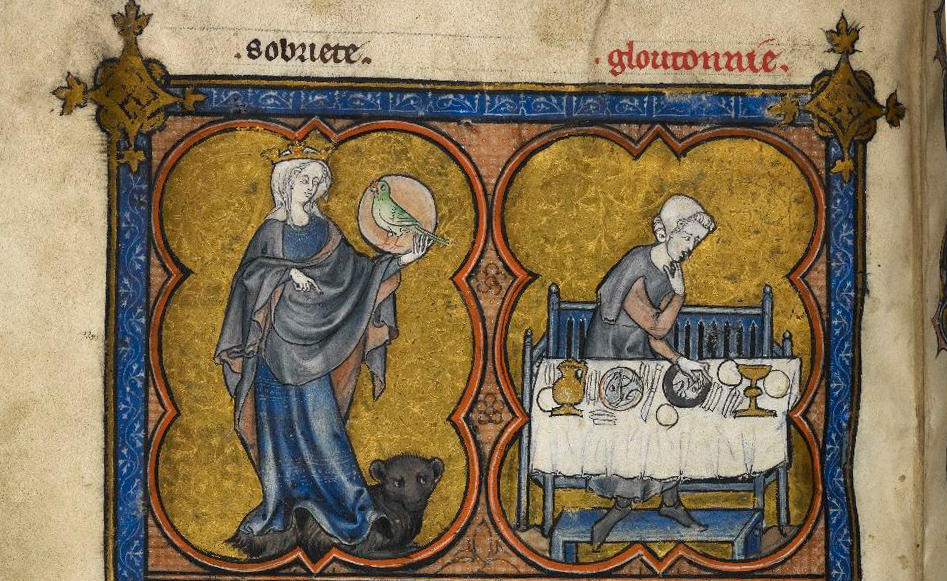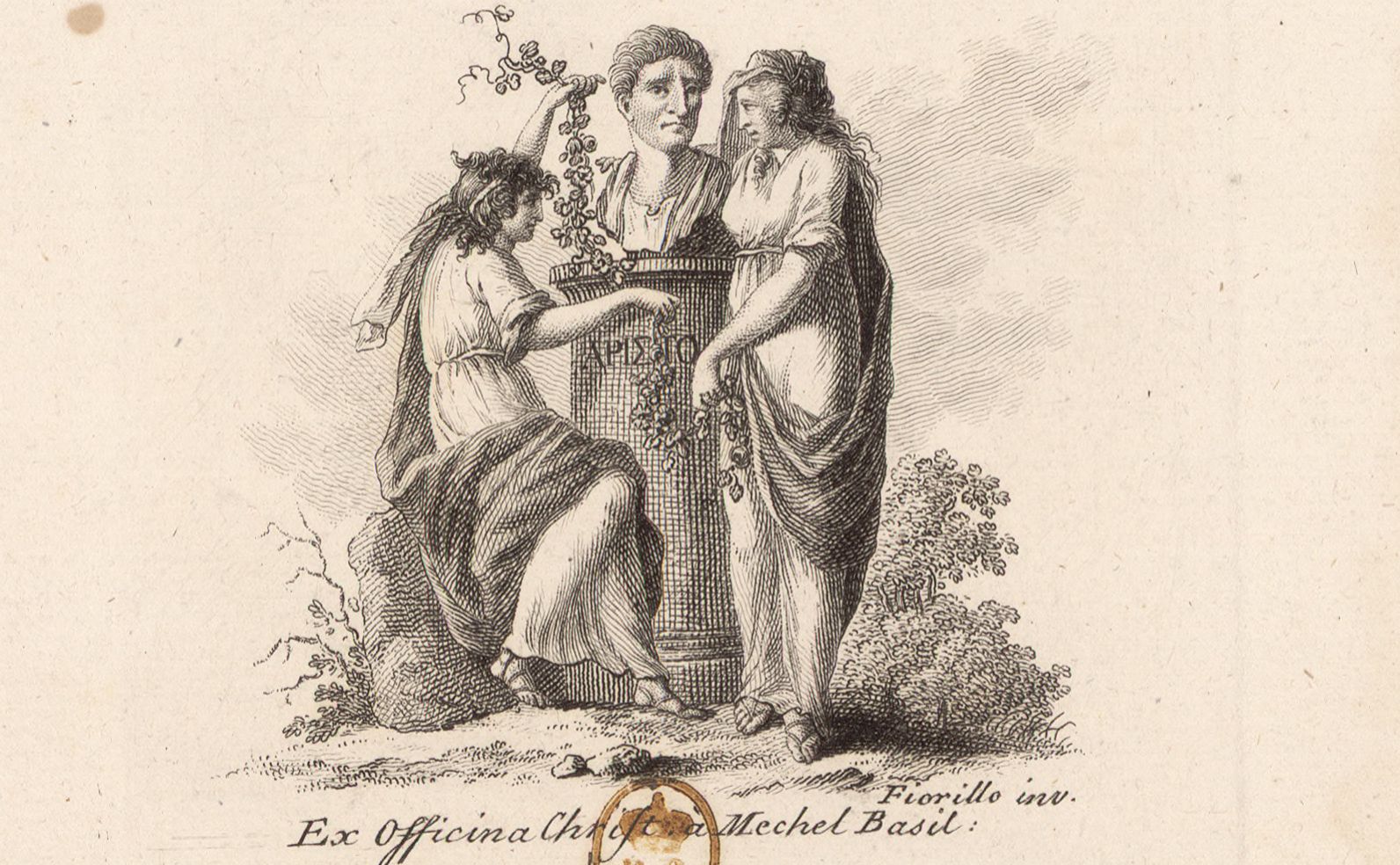Aristotle’s apophthegmata in Diogenes Laertius. Continued from last time.
“When asked what the upshot of philosophy was, he said, ‘the fact that I do without orders what others do because of a fear of the law.’
When asked how students might make progress, he said, ‘when the people urging on the ones who are ahead do not wait for the ones who are behind.’
To the talkative person who’d inundated him with a long story and then asked, ‘has my babbling annoyed you?,’ he said, ‘oh god no, I wasn’t paying attention.’
To the person who accused him of doing a favour for a no-good man – for it is also told in this way – he said, ‘I didn’t do it for a man, but humanity’.
When asked how we should treat our friends, he said, ‘the way we wish they would treat us.’
He said justice is a virtue of soul distributive of something according to worth.
He used to say, ‘the best provision for old age is education.’
In the second book of his Memoirs, Favorinus says that he used to say all over the place, ‘for the one who has friends, there is no friend;’ it’s also in the seventh book of the Ethics.*
These, then, [are the sayings that] have been attributed to him.”
[20 cont.] ἐρωτηθεὶς τί ποτ' αὐτῷ περιγέγονεν ἐκ φιλοσοφίας, ἔφη, “τὸ ἀνεπιτάκτως ποιεῖν ἅ τινες διὰ τὸν ἀπὸ τῶν νόμων φόβον ποιοῦσιν.” ἐρωτηθεὶς πῶς ἂν προκόπτοιεν οἱ μαθηταί, ἔφη, “ἐὰν τοὺς προέχοντας διώκοντες τοὺς ὑστεροῦντας μὴ ἀναμένωσι.” πρὸς τὸν εἰπόντα ἀδολέσχην, ἐπειδὴ αὐτοῦ πολλὰ κατήντλησε, “μήτι σου κατεφλυάρησα;” “μὰ Δί',” εἶπεν· “οὐ γάρ σοι προσεῖχον.”
[21] πρὸς τὸν αἰτιασάμενον ὡς εἴη μὴ ἀγαθῷ ἔρανον δεδωκώς – φέρεται γὰρ καὶ οὕτως – ”οὐ τῷ ἀνθρώπῳ,” φησίν, “ἔδωκα, ἀλλὰ τῷ ἀνθρωπίνῳ.” ἐρωτηθεὶς πῶς ἂν τοῖς φίλοις προσφεροίμεθα, ἔφη, “ὡς ἂν εὐξαίμεθα αὐτοὺς ἡμῖν προσφέρεσθαι.” τὴν δικαιοσύνην ἔφη ἀρετὴν ψυχῆς διανεμητικὴν τοῦ κατ' ἀξίαν. κάλλιστον ἐφόδιον τῷ γήρᾳ τὴν παιδείαν ἔλεγε. φησὶ δὲ Φαβωρῖνος ἐν τῷ δευτέρῳ τῶν Ἀπομνημονευμάτων ὡς ἑκάστοτε λέγοι, “ᾧ φίλοι οὐδεὶς φίλος”· ἀλλὰ καὶ ἐν τῷ ἑβδόμῳ τῶν Ἠθικῶν ἐστι. καὶ ταῦτα μὲν εἰς αὐτὸν ἀναφέρεται.
Diogenes Laertius, Lives of the Eminent Philosophers, 5.20-21
*Looks like he means the work we call the Eudemian Ethics. Aristotle does not quite say what is reported in the text of Diogenes (he says ‘many friends’ instead of just ‘friends’), and he doesn’t say it ‘all over the place;’ also, it seems Aristotle, too, was quoting an apophthegm when he wrote it. Here’s the passage (it’s quite beautiful):
“We say we seek and pray for many friends, and at the same time that ‘there is no friend for the one who has many friends.’ Both are right. It is within the realm of possibilities for many people to live together in community and share in each other’s experience. This would be the most choiceworthy thing of all; but it is also the most difficult, and for this reason, it is necessary that the activity of sharing our experiences be kept among only a few people. And so not only is it difficult to make many friends (since you need to get to know one other), but also to enjoy the friends one has.”
καὶ τὸ ζητεῖν ἡμῖν καὶ εὔχεσθαι πολλοὺς φίλους, ἅμα δὲ λέγειν ὡς οὐθεὶς φίλος ᾧ πολλοὶ φίλοι, ἄμφω λέγεται ὀρθῶς. ἐνδεχομένου γὰρ πολλοῖς συζῆν ἅμα καὶ συναισθάνεσθαι ὡς πλείστοις αἱρετώτατον: ἐπεὶ δὲ χαλεπώτατον, ἐν ἐλάττοσιν ἀνάγκη τὴν ἐνέργειαν τῆς συναισθήσεως εἶναι, ὥστ᾽ οὐ μόνον χαλεπὸν τὸ πολλοὺς κτήσασθαι (πείρας γὰρ δεῖ), ἀλλὰ καὶ οὖσι χρήσασθαι.
Eudemian Ethics 7, 1245b20-25
Earlier in the Eudemian Ethics 7, 1238a9-10, Aristotle says something a bit different. Like the previous passage, he says it’s hard to have lots of friends because it takes time to really cultivate a friendship; but he also adds that he thinks it’s just not possible to feel affection for more than one person at a time. This is a strong claim. In Nicomachean Ethics 8.6, 1158a10-11, it’s even stronger. He says humans by nature can’t love more than one person at a time. Does he really think this? Given the quotation above it’s hard to see how—maybe he’s not too committed to it, maybe I’m missing something.
The Nicomachean Ethics also gives a bit more context to the claim about the time it takes to make a friend:
πολλοὺς δ' ἅμα τῷ αὐτῷ ἀρέσκειν σφόδρα οὐ ῥᾴδιον, ἴσως δ' οὐδ' ἀγαθοὺς εἶναι. δεῖ δὲ καὶ ἐμπειρίαν λαβεῖν καὶ ἐν συνηθείᾳ γενέσθαι, ὃ παγχάλεπον.
Aristotle, Nicomachean Ethics 8.6, 1158a13-15
There is a difference of opinion among translators about the passage. It’s been moved in opposite directions:
1. “It is not easy for many people to please the same person a great deal at the same time, nor, perhaps, that they be good people.” (Ross takes it this way)
2. “It is not easy for the same person to please many people a great deal at the same time, and perhaps there are not many good people.” (Crisp in the Cambridge translation takes it this way)
The first says something like, “it’s hard to really enjoy lots of people at the same time,” and while I sort of see what this might mean, I admit I don’t totally get it. One thing Ross might be thinking is that Aristotle is making a logical point. It’s like he’s saying, ‘if any one of those people were actually pleasing, there wouldn’t need to be so many of them.’
Or maybe he’s thinking we only have so much attention we can give to everything going on in our lives. If there are too many things going on, at some point we have no more attention to give, so if lots of people are trying to please the same person at the same time, that person won’t be able to be exceptionally pleased by any one of them. And if, to become a true friend, you need to be exceptionally pleasing, then it would be hard for any of those people to become friends (as in the ‘no friend for the one with friends’ saying).
The second says something like, “it’s hard to be all things to all people,” especially since (as he goes on to say), “one needs to become deeply acquainted and develop intimacy” to be a friend, “and this is very difficult.” This puts the emphasis on the fact that, again, time and attention are finite, and the more we divide them, the less we have for any one person.
The reason people take the passage in two ways is in part grammatical. The clause is in indirect speech and the verb ἀρέσκειν can take both a dative and an accusative (i.e., one can be pleasing to X (dative) or simply please X (accusative)). Our sentence has nouns in both cases (πολλούς, as a substantive, ‘many people’; τῷ αὐτῷ, ‘the same person’). So either πολλούς is the subject of ἀρέσκειν and τῷ αὐτῷ is a personal dative (‘that many people are pleasing to the same person is not easy’); or, πολλούς is the object of ἀρέσκειν and τῷ αὐτῷ goes with οὐ ῥᾴδιον (‘it is not easy for the same person to please many people...’).
Passages like this can expose a translator’s intuitions about things seemingly familiar.






![“A dysputaciou[n] betwyx þ[e] saulee and þe body whe[n] it is past oute of þe body”. BL Add MS 37049 f. 81r. At the British Library.](https://images.squarespace-cdn.com/content/v1/56735f50a2bab8f9c97c115d/1552526197670-DLX87H3W1YJFFIVAO15U/bladdms37049.jpg)